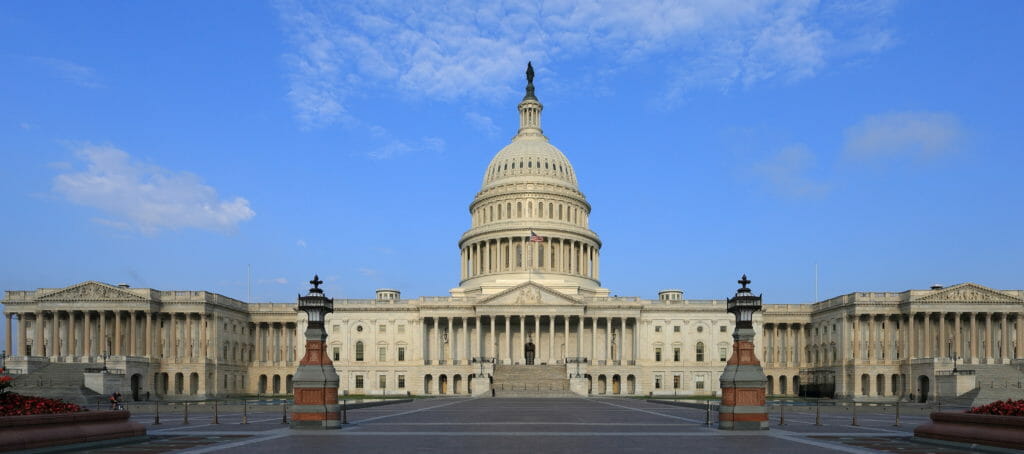Washington’s Political Lobbying Shackles Science
Money talks, says a study of Washington’s political lobbying and its influence on climate change law. Most of the most vocal money comes from big energy. Lobbyists for big energy recognize that when it comes to influencing climate legislation in Congress, money talks more urgently and effectively than evidence. (Martin Falbisoner / Wikimedia Commons)
Lobbyists for big energy recognize that when it comes to influencing climate legislation in Congress, money talks more urgently and effectively than evidence. (Martin Falbisoner / Wikimedia Commons)
From 2000 to 2016, Washington’s political lobbying used money as lavishly as ever. The electricity utilities, fossil fuel companies and transportation companies spent around $2 billion to “lobby” the US Congress and Senate on matters of climate legislation. Those sectors most likely to be affected by any changes in the law spent most on the issue.
In contrast, environmental organizations and the renewable energy sector each spent no more than a thirtieth of such sums.
And during the first 16 years of the new century, lobby spending in the US fluctuated: from 2000 to 2006, lobbyists for big energy spent only about $50 million.
But as President Obama began office in the White House in 2009, and the US Congress started to contemplate legislation to contain or limit global warming driven by profligate fossil fuel use worldwide, lobbyist spending had peaked at $362 million, according to new research in the journal Climatic Change.
“The process may limit the communication of accurate scientific information in the decision-making process”
Since then, President Trump has announced the US withdrawal from a global agreement to contain climate change signed by President Obama. The implication is that when it comes to influencing climate legislation, money talks more urgently and effectively than evidence.
Lobbying is not new. In democracies, all groups active in business, politics, the law and the economy seek to persuade lawmakers, and persuasion involves expense. But voters and ordinary citizens most affected by climate change and energy policy may be aware of neither the thrust and professionalism of the persuasion, nor the price paid for it.
“Lobbying is conducted away from the public eye,” says the sociologist Robert Brulle of Drexel University in Philadelphia, who worked through almost 2 million official quarterly reports required by law in the US of all professional lobbyists paid to lobby on behalf of a client who make more than one contact with government officials and spend more than 20% of their time on lobbying.
“There is no open debate or refutation of viewpoints offered by professional lobbyists meeting in private with government officials. Control over the nature and flow of information to government decision-makers can be significantly altered by the lobbying process and creates a situation of systematically distorted communication.
Small fraction
“The process may limit the communication of accurate scientific information in the decision-making process.”
In fact, professional lobbyists spent more than $50bn during the 16 relevant years of this century, and climate issues constituted only a fraction of that investment.
Professor Brulle found that the electrical utilities sector spent $554 million – a quarter of all climate lobbying – over the 16 years. Fossil fuel investors spent $370 million and the transport providers dug into their pockets for $252m during these years.
It is no secret that big fossil fuel companies have resisted the logic of climate science and countered attempts to contain global warming.
Five years ago, Professor Brulle set himself the challenge of identifying political manipulation of US climate change legislation: he looked at Inland Revenue Service data from 91 climate denial organisations and found that they had received $558m in “dark money” – that is, money from 140 foundations and trusts whose own sources of finance were not clear.
Forceful messaging
Three years ago a researcher at Yale University worked through 20 years of contrarian literature, US media coverage and presidential documents to confirm that organizations with powerful corporate benefactors – and these included at least one oil giant – were better at getting their message across.
The conclusion, once again: money talks. And, Professor Brulle warns, his latest study still doesn’t reveal quite how forcefully money talks.
His figures cover “only reported lobbying spending. It does not count activities related to lobbying, including grassroots mobilization, media relations and public relations. It has been estimated that an equally large amount is spent on these activities.”
Your support matters…Independent journalism is under threat and overshadowed by heavily funded mainstream media.
You can help level the playing field. Become a member.
Your tax-deductible contribution keeps us digging beneath the headlines to give you thought-provoking, investigative reporting and analysis that unearths what's really happening- without compromise.
Give today to support our courageous, independent journalists.






You need to be a supporter to comment.
There are currently no responses to this article.
Be the first to respond.